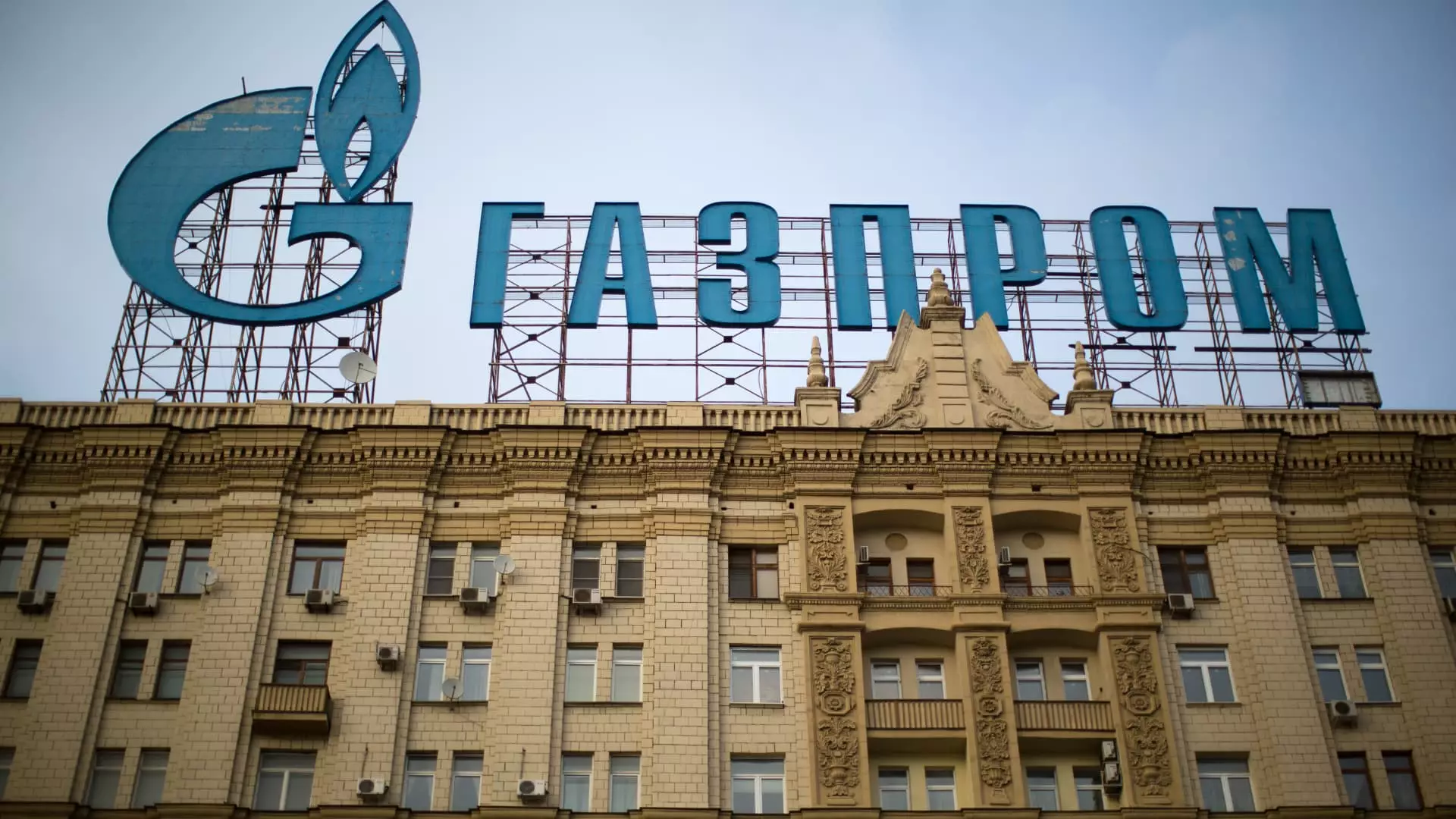In a significant geopolitical maneuver, Gazprom, the Russian state-owned energy behemoth, announced an impending halt to gas supplies destined for Moldova effective from January 1. This decision is grounded in allegations of substantial unpaid debts owed by Moldova, which has ambitious plans to align itself with the European Union. The implications of this cut-off are severe, potentially leading to power shortages and instigating emergency measures in the small Eastern European nation. Gazprom’s declaration was accompanied by a warning that it might consider further actions, which include the possible annulment of its contract with Moldovagaz, the main gas operator in Moldova.
Moldova’s energy landscape is intimately tied to the Kuciurgan power plant, the largest in the country, which is located in the pro-Russian breakaway region of Transnistria. This plant relies heavily on Gazprom for its gas supplies and provides electricity to a significant portion of Moldova. The political backdrop of this situation is complex; Moldova’s central government openly denounces Russian influence and seeks closer ties with the West, making Russia’s energy policy a tool of political leverage.
Accusations and Counterclaims
In response to Gazprom’s announcement, the Moldovan government has accused Moscow of weaponizing energy to exert control over its former Soviet republic. This situation is particularly dire as Moldova grapples with an energy crisis that stems from its historical dependence on Russian gas. Gazprom claims that Moldova’s debt for gas supply amounts to approximately $709 million, a figure vehemently disputed by Moldovan authorities. The Moldovan Prime Minister, Dorin Recean, has stated that this claim has been invalidated by international audits, which estimate the legitimate debt to be around $8.6 million.
The tension is exacerbated by Moldova’s reluctance to accept the legitimacy of past agreements concerning the Kuciurgan power plant, which was privatized in 2004 but has remained a contentious issue. The Moldovan government’s stance is strengthened by the backing of foreign audit firms which challenge Gazprom’s assessment of the situation. Consequently, Moldova is now exploring legal avenues, including the potential for international arbitration, to protect its interests amid this escalating energy crisis.
Anticipating the fallout from this energy disruption, Moldova has proactively moved to implement emergency measures to safeguard its energy supply. The government’s recent decision to declare a state of emergency in the energy sector reflects the seriousness of the potential energy shortages they might face this winter. Strategies include energy conservation measures such as reducing lighting in public buildings, limiting operations of energy-intensive businesses to off-peak hours, and encouraging citizens to minimize their energy consumption.
There is a palpable urgency within the Moldovan government to diversify its energy sources and minimize reliance on Russian gas. Following the disruptions caused by Russian strikes on Ukraine, Moldova has recognized the vulnerabilities inherent in its current energy dependency. The recent political climate, marked by the re-election of pro-Western President Maia Sandu, signals a broader pivot toward European integration and a strategic quest for greater energy security.
Moldova’s situation is a microcosm of larger energy dynamics at play in Europe, especially in the wake of Russia’s ongoing invasion of Ukraine. Following a series of gas supply cuts in 2022, primarily aimed at Western Europe, the energy strategy of the entire region has undergone a dramatic transformation. European governments have scrambled to develop alternative gas supplies, relying increasingly on liquefied natural gas (LNG) imports from the United States and Qatar to meet their demands. The stakes are high as nations confront the reality that energy supply can be weaponized in geopolitics.
As Moldova grapples with these energy challenges, it illustrates the precarious position many Eastern European countries find themselves in. The energy standoff with Gazprom is not merely an economic problem; it encapsulates a struggle for independence and alignment in a post-Soviet era fraught with external pressures. Consequently, Moldova’s immediate response will not only determine its energy security in the short term but could also influence its overarching trajectory toward full integration with European structures and values.



Leave a Reply